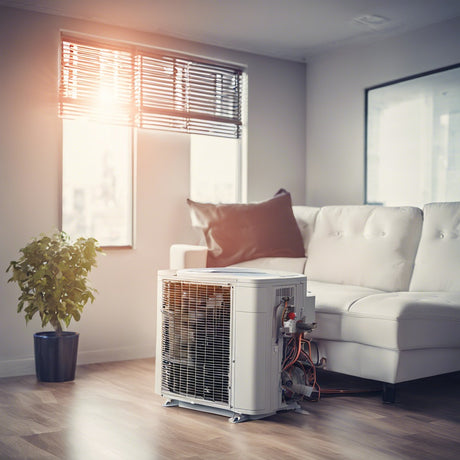- No products in the cart.
Mastering Climate Control: Tips for Choosing the Right HVAC System Installation
14
Feb
Introduction: Achieving optimal comfort in your home or workplace requires mastering climate control, and selecting the right HVAC (Heating, Ventilation, and Air Conditioning) system is paramount to this endeavor. With various options available in the market, choosing the most suitable HVAC system installation can be a daunting task. In this blog post, we'll provide valuable tips to help you navigate the selection process and ensure you make the best choice for your specific needs.
-
Understand Your Requirements: Before embarking on selecting an HVAC system, it's crucial to assess your specific requirements. Consider factors such as the size and layout of your space, insulation quality, local climate conditions, and any specific comfort preferences or requirements you may have. Understanding these factors will guide you in choosing the right type and size of HVAC system for your needs.
-
Evaluate Efficiency Ratings: Efficiency is a key consideration when selecting an HVAC system, as it directly impacts energy consumption and operating costs. Look for systems with high efficiency ratings, such as SEER (Seasonal Energy Efficiency Ratio) for air conditioners and AFUE (Annual Fuel Utilization Efficiency) for furnaces. Energy-efficient systems not only help reduce utility bills but also contribute to environmental sustainability.
-
Consider System Types: HVAC systems come in various types, each offering unique advantages and suitability for different applications. Common types include:
- Central Air Conditioning: Ideal for larger spaces with existing ductwork.
- Ductless Mini-Splits: Suitable for smaller spaces or areas where ductwork installation is impractical.
- Heat Pumps: Provide both heating and cooling functions and are highly energy-efficient.
- Furnaces: Ideal for heating purposes and available in gas, electric, or oil-powered models.
-
Assess Installation Requirements: Assessing your space's existing infrastructure and layout is essential in determining the installation requirements for your HVAC system. Consider factors such as ductwork availability, zoning options, and compatibility with existing equipment. Consulting with an HVAC professional can help you identify any installation challenges and determine the best course of action.
-
Research Reliable Contractors: Choosing a reputable HVAC contractor is critical to ensuring a successful installation process. Look for licensed, insured, and experienced contractors with a proven track record of quality workmanship. Consider seeking recommendations from friends, family, or online reviews, and request multiple quotes to compare services and pricing.
-
Prioritize Proper Sizing: Proper sizing is crucial for optimal HVAC system performance and energy efficiency. An oversized system may lead to frequent cycling and uneven temperatures, while an undersized system may struggle to maintain comfort levels. Work with your contractor to perform load calculations and select the appropriately sized HVAC system for your space.
-
Invest in Quality: While upfront costs may be a consideration, it's essential to prioritize quality when selecting an HVAC system. Investing in a high-quality system from reputable manufacturers may result in greater reliability, longevity, and overall satisfaction with your investment.
-
Plan for Regular Maintenance: Regular maintenance is key to ensuring the longevity and efficiency of your HVAC system. Schedule annual tune-ups, filter replacements, and system inspections to keep your system running smoothly and identify any potential issues early on.
Conclusion: Choosing the right HVAC system installation is a crucial decision that requires careful consideration of various factors. By understanding your requirements, evaluating efficiency ratings, considering system types, assessing installation requirements, researching reliable contractors, prioritizing proper sizing, investing in quality, and planning for regular maintenance, you can master climate control and achieve optimal comfort and efficiency in your space.













